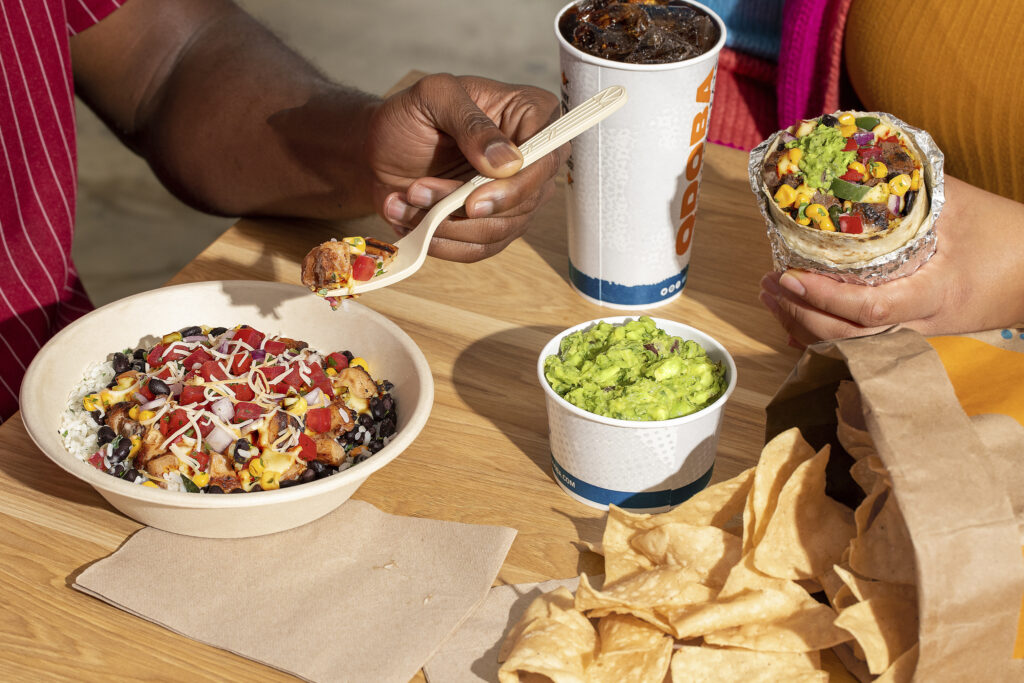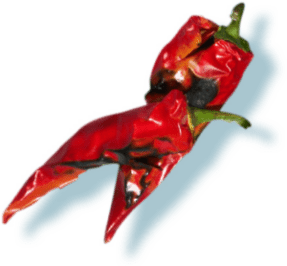Source: Restaurant Business Online
Despite being a distant second in the fast-casual Mexican category. QDOBA hopes to step out of Chipotle’s shadow with its signature promise of queso and guac.
In the fast growing but increasingly competitive fast-casual space, there’s a new kid on the block.
Except that kid is 30 years old.
QDOBA, it seems, has become the brand drawing everyone’s attention, at least in the franchise world. Over the past year, the San Diego-based chain has been announcing franchise development agreements by the bucketful, including one this month that will bring 50 units to five states.
Last month, QDOBA announced the closing of a $527 million single-asset continuation fund that will extend the partnership with Butterfly Equity, which acquired QDOBA in 2022, indicating investors see a lot more potential from this player.
In a somewhat bizarre twist, the investment was led by the asset management firm Apollo, which was the previous owner of QDOBA that sold the chain to Butterfly.
That’s like an ex coming back to rejoin the family alongside the current spouse.
Yet the 818-unit QDOBA is a distant second to fast-casual Mexican category leader Chipotle, which has more than 3,800 units in the U.S. and is racing for a 7,000-unit count.
What is it that is making QDOBA so attractive at the moment?
It’s that very second-place positioning, argues CEO John Cywinski, a former president of Applebee’s, who was recruited by Butterfly to lead QDOBA about three years ago.
Fast casual is the fastest growing segment, he said. Mexican fast-casual is the fastest-growing subset of that. Chipotle has long led the category – even defined it, said Cywinski.
But Chipotle does not franchise, at least not in the U.S.
So for franchise operators to get a piece of the demand for fast-casual Mexican food, they will likely end up at QDOBA’s door.
And Cywinski, who was president of quick-service player KFC before moving to casual dining with Applebee’s, has lots of friends in the multi-unit franchise community who are receptive to this message.
“I have a fundamental belief that those large multi-concept franchisees, who operate in QSR and casual dining, are going to wake up and realize they are way over-invested in really challenged categories. And they are going to need to diversify into fast casual, ideally Mexican fast casual,” he said. “And they certainly can’t diversify with Chipotle.”
Consider a few of the recent operators signing on with QDOBA.
Cafua Management, the nation’s largest Dunkin’ franchise operator, in January announced it has signed on to open 20 QDOBA units in New Hampshire and Rhode Island, on top of an earlier agreement to open five in Pennsylvania. It is the group’s first dip into fast casual.
Last year, Applebee’s franchisee Thrive Restaurant Group committed to develop 30 QDOBAs in North and South Carolina. The IHOP franchisee Q Eats LLC is planning to build 15 QDOBAs in Houston.
And this month Barry Dubin, who co-founded and exited the large KFC franchise company KBP Brands, has launched a new company called B Wild Investments LLC. B Wild plans to develop 50 QDOBA restaurants in Alaska, Utah, Nevada, Colorado and New Mexico.
And B Wild is also acquiring an existing QDOBA franchisee, though Dubin said he could not yet say which, or how many restaurants that will add because the deal had not yet closed.
Dubin said he’s drawn to QDOBA in part because of his respect for Cywinski, who he’s known from KFC days.
But he also sees tons of white space for the fast-casual Mexican brand, which is big enough to be proven but unknown enough to create opportunity.
“If you think about fast casual as a subset, Chipotle is No. 1, And then you have some regional folks. But it’s less crowded than a lot of sectors,” said Dubin.
Cywinski is also talking to experienced franchise operators that have the right balance sheet to, perhaps, no balk at things like putting in digital menu boards – something Dubin plans to do at his QDOBA units, though it’s not systemwide.
The Numbers
Of course, Dubin said he was also attracted by QDOBA’s four-wall economics.
QDOBA ended 2024 with $1.2 billion in sales, a more than 10% increase over the prior year, according to the Top 500 Restaurant Chain list by Technomic. That was with 777 units, a 4% increase. The average unit volume is $1.7 million. (Chipotle, by comparison, had sales of more than $11 billion in 2024.)
Cywinski has pledged to double system sales over the next five years with a strategy that includes building a strong corporate team, and partnering with financially strong and experienced multi-unit operators to fuel growth.
QDOBA’s same-store sales grew 8% in fiscal 2024, and that was on top of 5.8% same-store sales growth in 2023, according to the brand’s franchise disclosure documents.
So far this year, comparable sales are up about 4.5%, said Cywinski, and that’s with positive traffic at a time when other fast casuals are reporting traffic numbers that are “blood-red negative.”
Cywinski said QDOBA has outperformed Chipotle for four consecutive quarters. In the first quarter this year, Chipotle saw its first negative same-store sales since the pandemic.
That’s not to say QDOBA is immune to the macroeconomic headwinds he said. “It’s very clear America is economizing.”
But as Chipotle struggles with its value message, QDOBA has a point of differentiation that is particularly eye-catching for value-seeking consumers:
At QDOBA, queso and guac are free.
Well, not exactly free, as the cost is likely built into menu pricing. But consumers are not charged extra for the popular condiments, which can add up on a Chipotle receipt.
The two brands have similar messaging about freshly prepared ingredients, cooked in front of guests.
QDOBA also has 11 more ingredient options on the makeline for building a bowl, burrito or nachos, Cywinski said. And at QDOBA, proteins are flame grilled, not cooked on a plancha, like at Chipotle.
Perhaps most notably, QDOBA is in 46 states (soon to be 47), but there are huge swaths of the country without any (or many) QDOBAs – including vast frontiers like Texas, Florida and the chain’s home state of California.
After some pruning of the underperforming units, QDOBA plans to see 52 net new openings this year. Next year, that will grow to 75, and then 100 in fiscal 2027, he said.
The company owns about 20% of units, or 170 restaurants, and those will grow in number too, said Cywinski. Company owned markets include Colorado, where the brand was first born, as well as New England, Michigan and the upper plains.
The company deployed roughly $30 million in capital last year to remodel about half of the company-owned restaurants and put in digital menu boards, work that will continue.
The company has bought some markets from franchisees, like South Florida, he said. But it’s also investing in open geographies.
One new company market will be Phoenix, for example, where QDOBA plans to open 12 restaurants in two years.
“We said, ‘Let’s go show franchisees how you jump into a new market, where you have no restaurants, and you aggressively develop it,'” he said.
Going forward, about 15 to 20 company-owned restaurants a year are planned.
“And we may accelerate that because the return on those investments is quite handsome,” he said.
QDOBA’s History
California may claim the two largest fast-casual Mexican brands, but neither were born there.
Both QDOBA and Chipotle began in Denver. Steve Ells launched Chipotle in 1993. Two years later, QDOBA was created by Anthony Miller and Robert Hauser in 1995 as Zuma Fresh, and the Z-Teca, before settling in 1999 on QDOBA Mexican Grill. Colorado remains QDOBA’s most concentrated market, with 65 restaurants there.
In 2003, QDOBA was acquired by San Diego-based Jack in the Box, which ran the brand for 15 years before selling to Apollo in 2018.
Cywinski said the brand was somewhat of an “orphan” under the large private-equity firm. But when the much-smaller Butterfly Equity came along, it became a more devoted parent.
At the time, Butterfly also acquired two other restaurant brands: Modern Market Eatery and Lemonade, but those were later sold. Now QDOBA is the firm’s only restaurant holding (though there are several other food businesses including Chosen Foods, Duckhorn wines, Pacifico Aquaculture, and others).
Cywinski likes the call QDOBA “America’s best-kept secret.” Many people still don’t know how to pronounce the name. But he hopes to change that.
This fall, QDOBA is planning to begin investing about $40 million in national advertising, which will be a first.
Cywinski said the company brought leads to Dallas recently and asked them to elevate their national marketing contribution. “They overwhelmingly voted in favor,” he said.
Ads will likely focus on the food and flavors available at QDOBA, he said.
But mostly, Cywinski wants America just to know the brand exists.
Even as Chipotle continues to grow across North America, Cywinski argues that the two brands can peacefully co-exist. There’s no need to steal market share.
“America likes choice,” he said. “Not every coffee consumer wants Starbucks. Not every burger guest wants McDonald’s. Not every pizza guest wants Pizza Hut. And not everybody looking for bowls and burritos wants Chipotle.”


